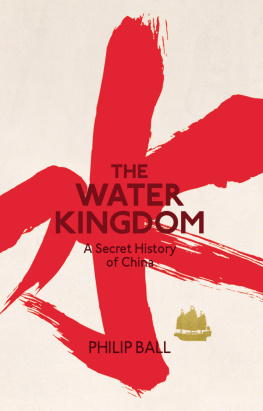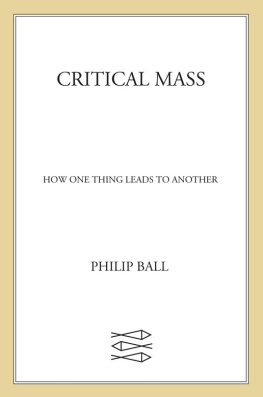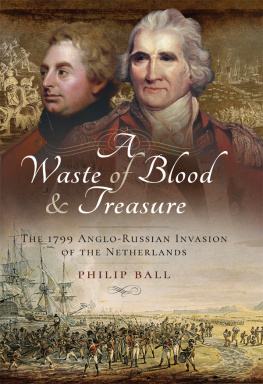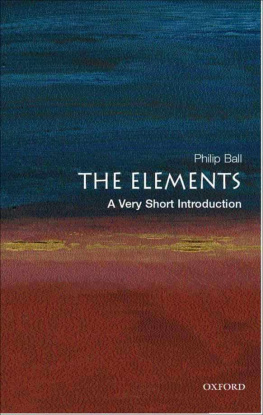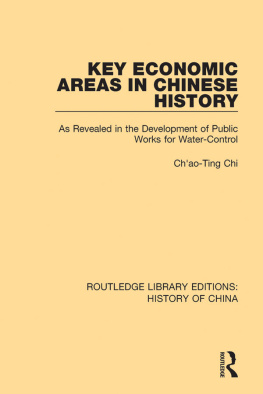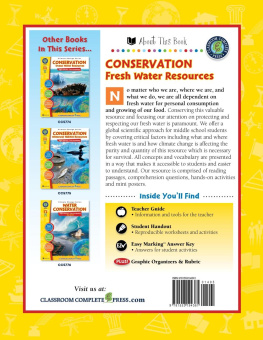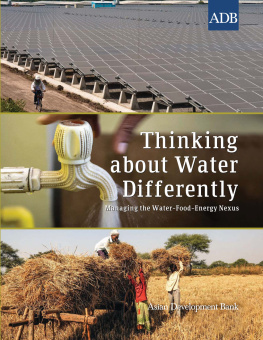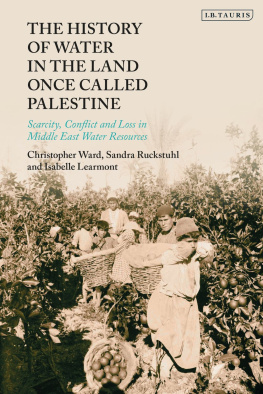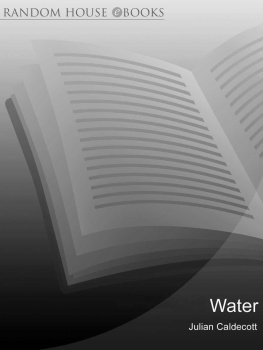Acknowledgements
Why were drawn to particular places is often a mystery. To the Westerner, China can seem forbidding and harsh, remote, baffling and frustrating. But I was still in my teens when I fell under its spell, and when the opportunity later arose for me to spend some time travelling, China was my immediate choice of destination. I dont know if I found what I expected, based as it necessarily was on romantic imaginings. But circumstances have conspired to take me back to China many times since, and I shall continue to return. It has been my immense privilege to meet many Chinese people who have deepened my appreciation for their country; some are now good friends and colleagues. It is first to all of these folk that I offer my gratitude and acknowledgements: to their spirit, their warmth and generosity, by which I am humbled.
It was a leap of wild optimism to attempt a book of this sort, and the faith and trust offered by my publishers has been essential. For this, and for their diligence in seeing the project through, I am deeply grateful to Stuart Williams and Jrg Hensgen at the Bodley Head, and to Karen Merikangas Darling at the University of Chicago Press. My agent Clare Alexander was equally brave to represent it, and as ever her advice has helped me to find some kind of shape and structure for what is really a rather absurdly overwhelming subject. Several people kindly provided advice, publications and images in particular, Sarah Allan, David Clarke, Jan Engberts, Li Cho-ying, Sam Turvey and Thomas Stephens.
My family has shared in more of this process than I have usually asked of them, braving the Yangtze drizzle and Henan heat with humour and resilience, and with not much more than dumplings by way of recompense. I hope it was worth it, for I am quite certain that more adventures await us in the Middle Kingdom.
Philip Ball
London, June 2016
ALSO BY PHILIP BALL
Designing the Molecular World:
Chemistry at the Frontier
Made to Measure:
New Materials for the 21st Century
H2O:
A Biography of Water
The Self-made Tapestry:
Pattern Formation in Nature
Bright Earth:
The Invention of Colour
Stories of the Invisible:
A Guided Tour of Molecules
The Ingredients:
A Guided Tour of the Elements
Critical Mass:
How One Thing Leads to Another
Elegant Solutions:
Ten Beautiful Experiments in Chemistry
The Devils Doctor:
Paracelsus and World of Renaissance Magic and Science
Natures Patterns:
A Tapestry in Three Parts
Universe of Stone:
Chartres Cathedral and the Triumph of the Medieval Mind
The Sun and Moon Corrupted
The Music Instinct:
How Music Works and Why We Cant Do Without It
Unnatural:
The Heretical Idea of Making People
Curiosity:
How Science Became Interested in Everything
Serving the Reich:
The Struggle for the Soul of Physics under Hitler
Invisible:
The History of the Unseen from Plato to Particle Physics
About the Author
Philip Ball writes regularly in the scientific and popular media and worked for many years as an editor for physical sciences at Nature.
His books cover a wide range of scientific and cultural phenomena, and include Critical Mass: How One Thing Leads To Another (winner of the 2005 Aventis Prize for Science Books), The Music Instinct, Curiosity: How Science Became Interested in Everything, Serving The Reich: The Struggle for the Soul of Science Under Hitler and Invisible: The history of the Unseen from Plato to Particle Physics.
About the Book
A secret history of China a fresh new way of thinking about a people, a civilisation, an epic story.
The Water Kingdom takes us on a grand journey through Chinas past and present, offering a unique window through which we can begin to grasp the overwhelming complexity and teeming energy of the country and its people.
Water is a key that unlocks much of Chinese history and thought. The ubiquitous relationship that the Chinese people have had with water has made it an enduring metaphor for philosophical thought and artistic expression. From the Han emperors to Mao, the ability to manage the waters to provide irrigation and defend against floods became a barometer of political legitimacy, and attempts to do so have involved engineering works on a gigantic scale. Yet the strain that economic growth is putting on its water resources today may be the greatest threat to Chinas future.
The Water Kingdom is an epic, spell-binding story. Our guides are travellers and explorers, poets and painters, bureaucrats and activists, who have themselves struggled to come to terms with living in a world so shaped and permeated by water.
Bibliography
Allan, S., 1997. The Way of Water and the Sprouts of Virtue. SUNY Press, Albany.
Allan, S., 2003. The Great One, water, and the Laozi: new light from Guodian, Toung Pao 89, 23785.
Barnett, J., Rogers, S., Webber, M., Finlayson, B. & Wang, M., 2015. Transfer project cannot meet Chinas water needs, Nature 527, 2957.
Blakiston, T. W., 1862. Five Months on the Yang-Tsze. John Murray, London.
Blumenberg, H., 1985. Work on Myth, transl. R. M. Wallace. MIT Press, Cambridge, Ma.
Boulanger, N. A., 1764. The Origin and Progress of Despotism: in the Oriental and Other Empires of Africa, Europe and America. Amsterdam.
Burke III, E. & Pomeranz, K., 2009. The Environment and World History. University of California Press, Berkeley.
Bush, S. & Shih, H.-y., 1985. Early Chinese Texts on Painting. Harvard University Press, Cambridge, Ma.
Chan, W.-T. (transl. & ed.), 1963. A Source Book in Chinese Philosophy. Princeton University Press, Princeton.
Chang, K. C., 1983. Art, Myth, and Ritual: The Path to Political Authority in Ancient China. Harvard University Press, Cambrige, Ma.
Chang, P.-t., 2012. The rise of Chinese mercantile power in maritime southeast Asia, c.14001700, in Crossroads 6, http://www.eacrh.net/ojs/index.php/crossroads/article/view/30/Vol6_Chang_html.
Chetham, D., 2002. Before the Deluge: The Vanishing World of the Yangtzes Three Gorges. Palgrave Macmillan, New York.
Chi, C.-T., 1936. Key Economic Areas in Chinese History. Allen & Unwin, London.
China Education and Research Network, Cleaning the Yellow River, 1 January 2001. http://www.edu.cn/special_1506/20060323/t20060323_4751.shtml
Chiu, M. & Zheng, S., 2008. Art and Chinas Revolution. Asia Society, New York & Yale University Press, New Haven.
Clark, C., 1983. Flood. Time-Life, Amsterdam.
Clarke, D., 2010. Water and Art. Reaktion, London.
Creel, H. G., 1962. Chinese Thought. Methuen, London.
Dai, Q. (ed.), 1989. Yangtze! Yangtze! Available at https://journal.probeinternational.org/three-gorges-probe/yangtze-yangtze/
Dai, Q. (ed.), 1997. The River Dragon Has Come! Available at https://journal.probeinternational.org/the-river-dragon-has-come/
De Villiers, M., 2000. Water. Houghton Mifflin, Boston.
Diamond, J., 1998. Guns, Germs and Steel. Vintage, London.
Dodgen, R. A., 2001. Controlling the Dragon: Confucian Engineers and the Yellow River in Late Imperial China. University of Hawaii Press, Honolulu.
Dreyer, E. L., 2007. Zheng He: China and the Oceans in the Early Ming Dynasty, 14051433. Pearson Education & Longman, New York.
Dundes, A. (ed.), 1988. The Flood Myth. University of California Press, Berkeely.
Economy, E. C., 2010. The River Runs Black. Cornell University Press, Ithaca.
Edmonds, R. L., 1994.

